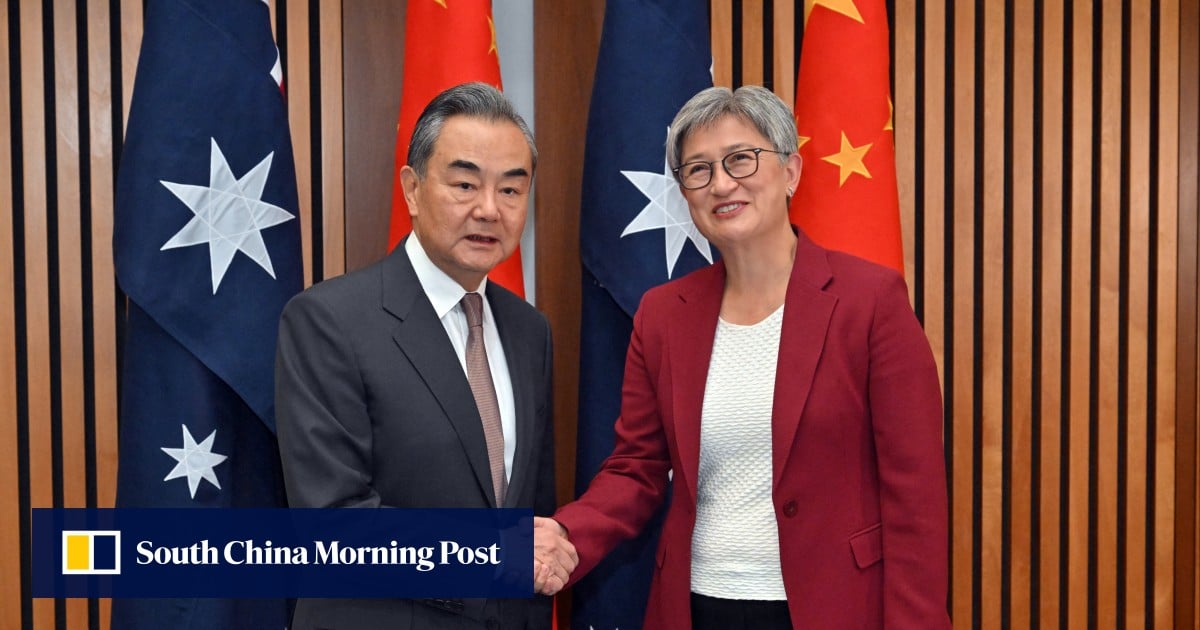Chinese Foreign Minister Wang Yi has asked Australian businesses and academics to visit China more and increase partnerships with Chinese counterparts, particularly in green energy, while reaffirming the two countries’ relations are back on track after a successful reset.
In a first visit by a Chinese foreign minister to Australia since 2017 amid thawing relations, Wang met Australian Foreign Minister Penny Wong for the seventh Australia-China Foreign and Strategic Dialogue in Canberra on Wednesday before speaking privately to a group of Australian leaders.
These include Australia China Business Council (ACBC) president David Olsson, Rio Tinto iron ore chief executive Simon Trott, and defence expert and Australia National University professor Hugh White.
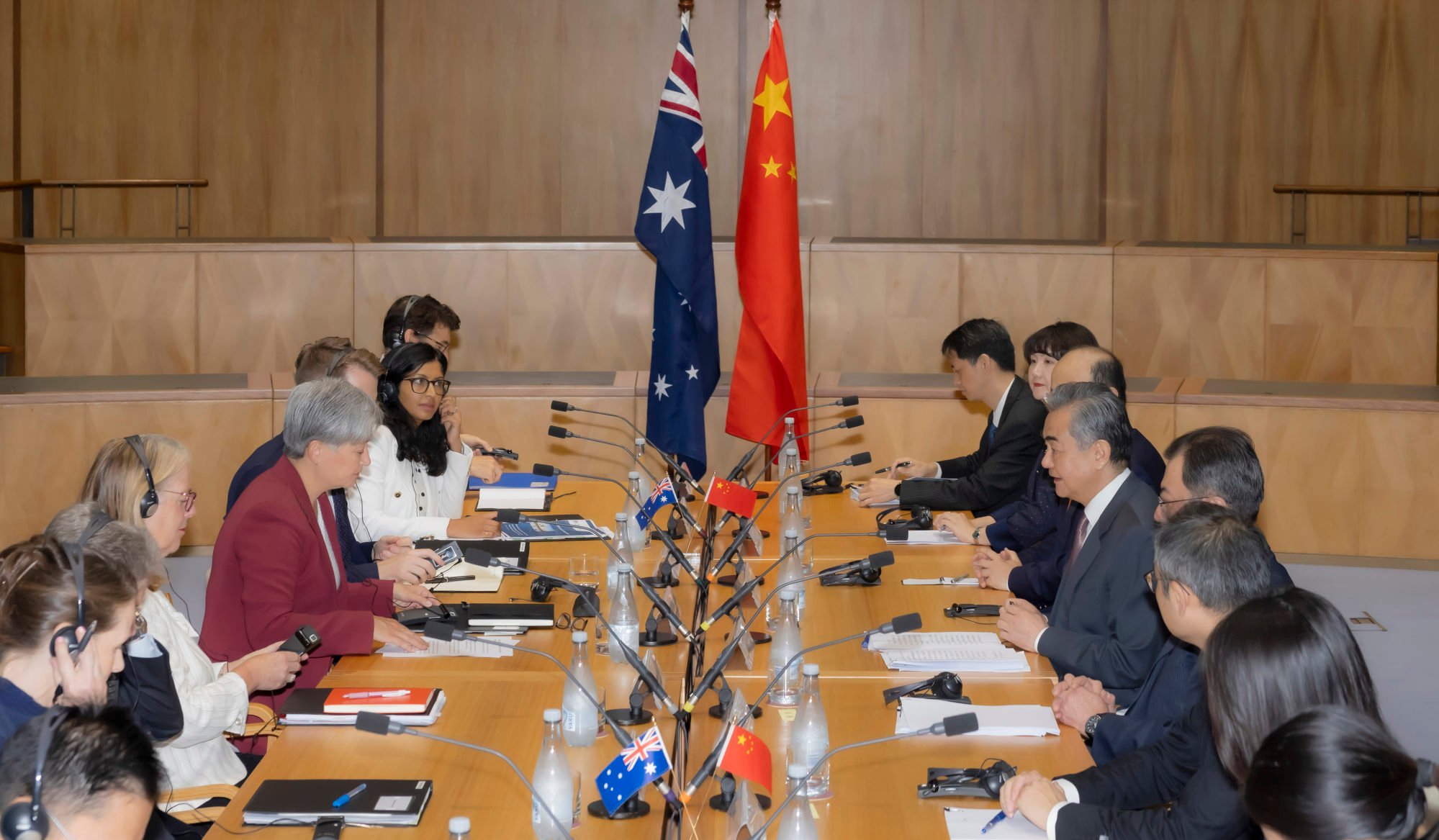
Wang told the group China was committed to transforming its economy into one with a “green, high-quality, growth model”, according to a statement from the ACBC.
Olsson said this would offer significant upside to Australian exporters and help “Australia’s own decarbonisation efforts and the longer-term industrial transformation of Australia’s economy”.
Wang and the group also discussed investments, education and digital trade, as well as China’s engagement with the United States and Asia.
“It was a free-ranging discussion reflecting a diverse range of views and voices from the Australian side, reflecting the conversations that are taking place in Australia about the future direction of the bilateral relationship,” Olsson said, adding that the tone of the meeting was “positive”.
Wang also said both countries had more in common than differences and thus should always seek to be partners than opponents.
China to end wine tariffs in ‘coming weeks’, Australia says, as ties improve
China to end wine tariffs in ‘coming weeks’, Australia says, as ties improve
Bilateral relations sank to an all-time low at the start of the pandemic following frictions stemming from a rise in Sinophobia in Australia, suspicions of Chinese foreign interference in Australia, the banning of China’s Huawei in Australia and Beijing blocking Australian exports in recent years.
Wang proposed that Australia and China respond to global challenges such as climate change together, and said the stability of bilateral relations contributed to global certainty.
With relations clearly moving in the right direction, both countries must keep up the momentum and “strive to continue to move well together and steadily, taking the journey far”, Wang said.
At the meeting with Wong, Wang said he was willing to increase high-level exchanges between the two countries and support cooperation in all fields.
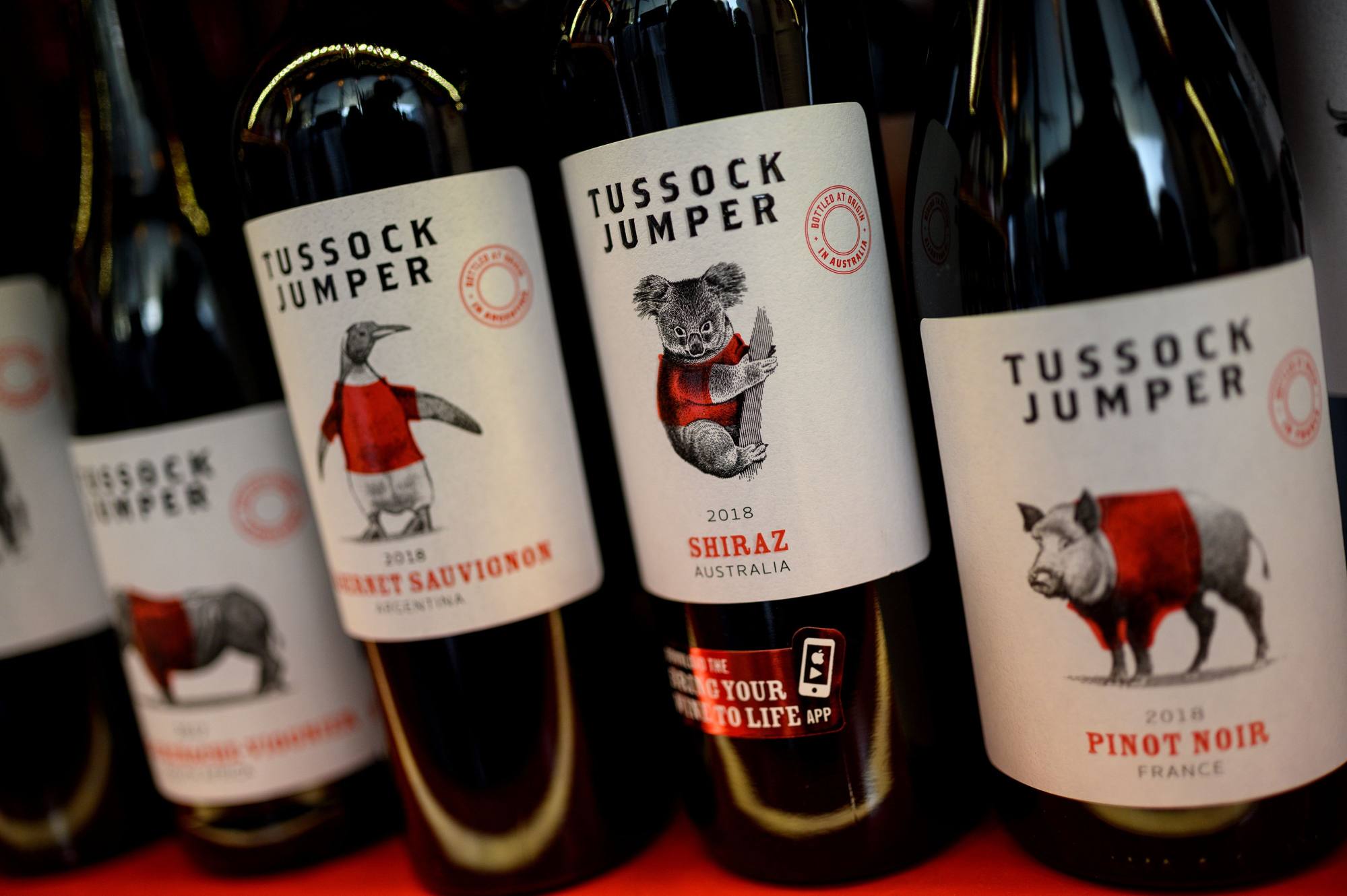
Vicki Thomson, chief executive of the “Group of Eight Australia” university coalition, said research collaboration between nations in particular was important and “central to enhancing our long-standing friendship … and to navigate the shared challenges ahead”.
“These partnerships deliver enormous economic and social benefits to both countries, but also foster enduring people-to-people ties, support soft diplomacy efforts, and boost practical cooperation between Australia and China,” Thomson said.
In recent years, however, Chinese academics have been raided in Australia by security agencies, prompting concerns over visits to Australia.
On the lifting of China’s trade restrictions on Australian exports – imposed after the former Morrison government suggested an independent investigation into China over the pandemic – Wong told a press conference that she welcomed China’s interim decision to lift export-prohibitive Chinese tariffs on Australian wine and looked forward to the easing of blocks on beef and lobsters.
The Chinese market is crucial to the profitability and growth of Australian wine as well as lobster producers.
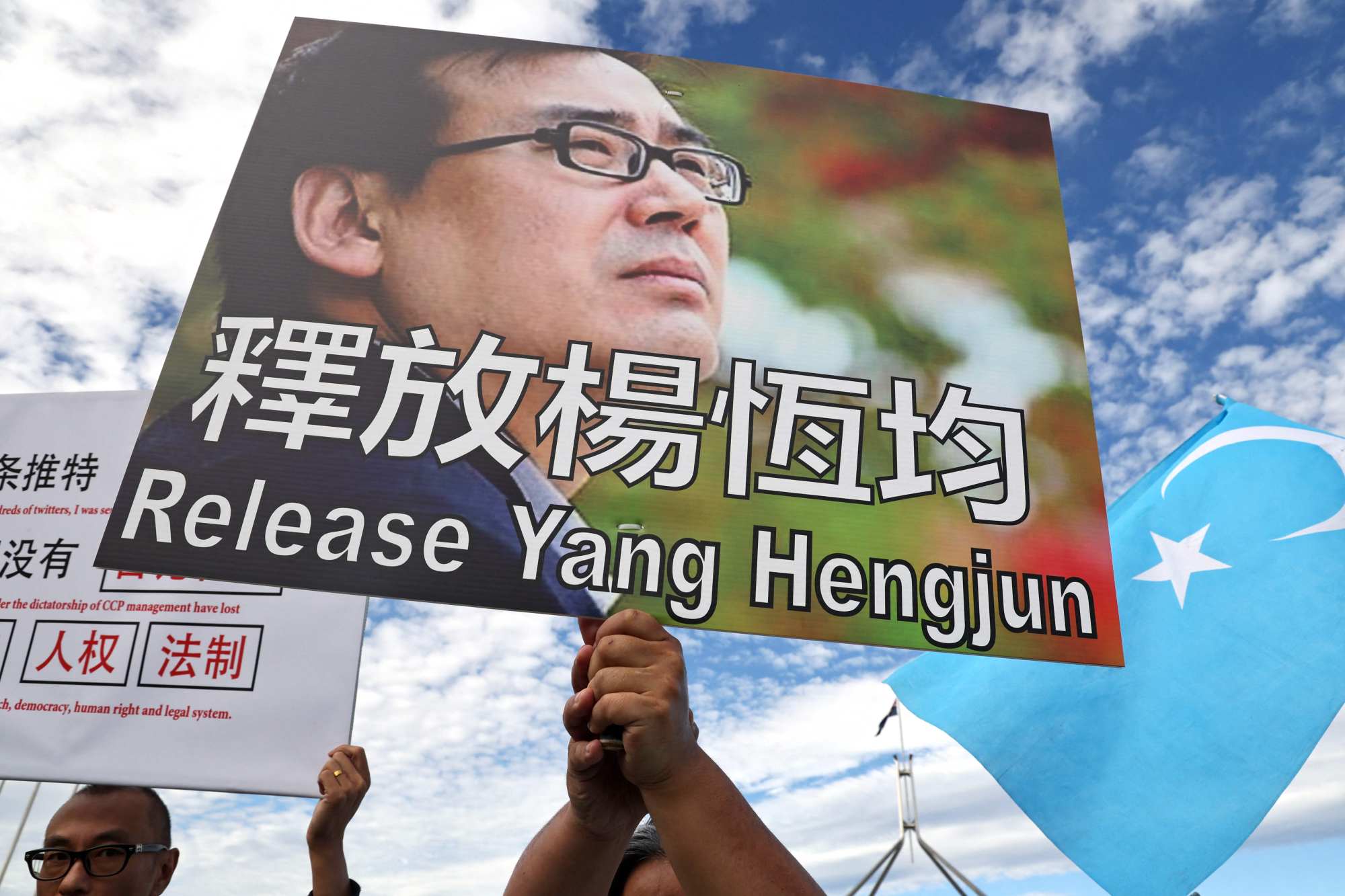
But Wong said Australia’s recent decision to end an anti-dumping ban on Chinese wind turbines was not in response to China’s move to ease trade with Australia.
She said on Wednesday that she had also spoken to Wang about the shock suspended death penalty for detained Australian academic Yang Hengjun, human rights abuse in Xinjiang, Tibet and Hong Kong, and unsafe conduct in the South China Sea.
Wang said China and Australia had no historical grievances or conflicts in relation to these issues and asked that both countries respect mutual sovereignty.
On a lighter note, Wong said it was likely two pandas on loan from China since 2009, and due to return this year, would extend their stay in Adelaide Zoo.
“And I did say to the foreign minister that my children would be very pleased,” she said.
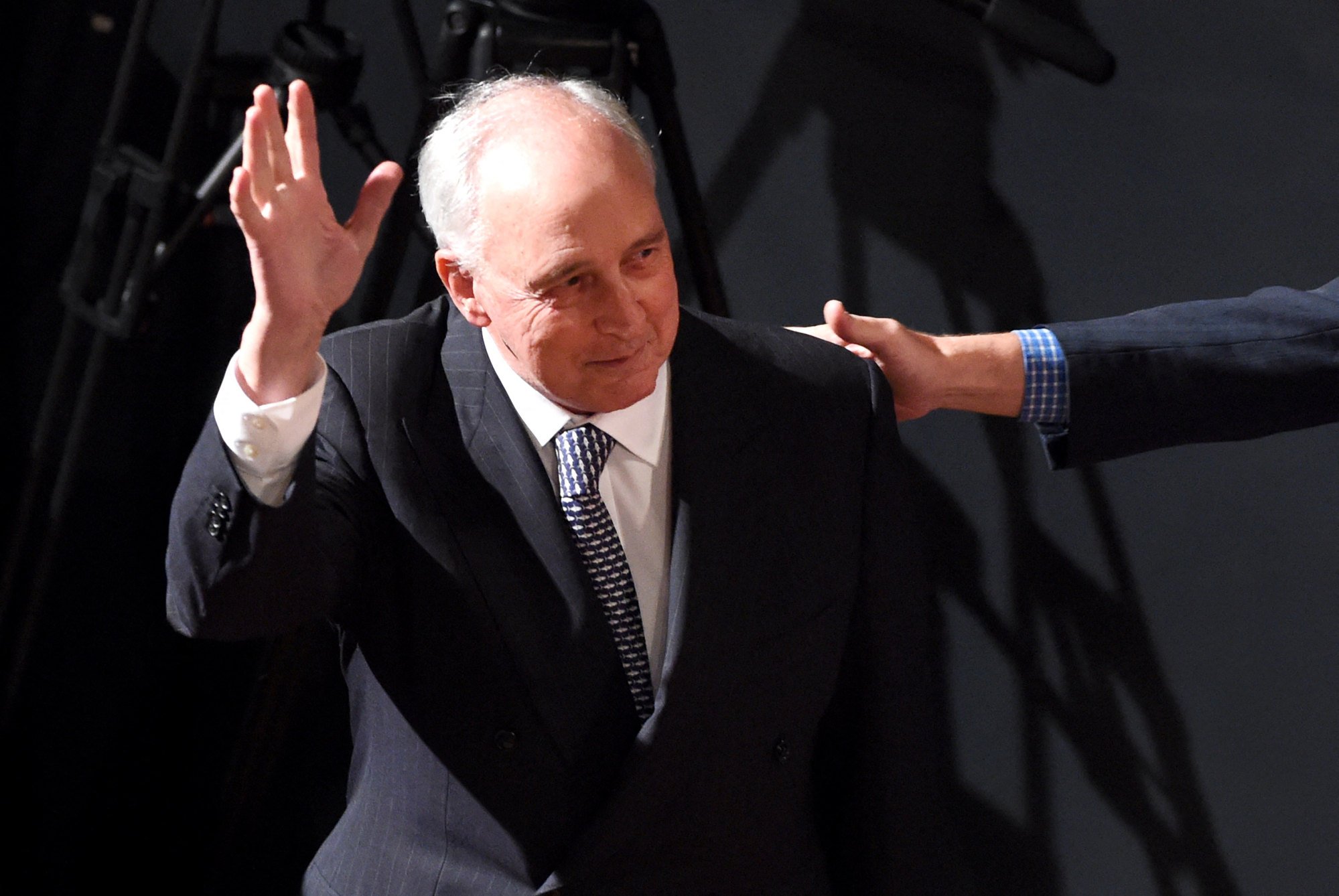
The positive meeting between the two nations was momentarily upset by allegations from right-wing publication The Australian that former Australian prime minister Paul Keating’s meeting with Wang while he was in Canberra – through an invitation from Beijing – would be Keating’s most “extraordinary intervention” in his campaign to oppose the Albanese government’s foreign policy.
Keating has been vocal in his opposition of Canberra’s Aukus submarine arrangements with the United Kingdom and the US – aimed at countering China and media suggestions of an invasion of Australia by China.
Keating said in a Monday statement that meeting Wang was part of the “intercourse of national and international discussion” and that commentary by The Australian should be “contemptuously ignored”.
“Australia has moved substantially from the counterproductive baiting policy the Morrison government applied to China to now something much more civil and productive,” he said.
“The Australian newspaper, for its part, remains trenchantly anti-Chinese.”

